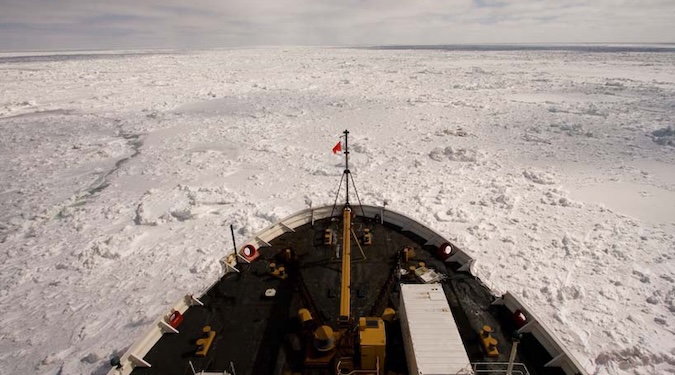Connor Sakati explores the risks, challenges, and opportunities arising from the possibility of high seas fisheries in the Central Arctic Ocean. Sakati compares the situation of the Arctic to the tragedy of the commons and uses that framework to understand the current predicament and make recommendations for the future.
The article begins by detailing the national security, environmental, and socioeconomic risks of ineffective governance in the Central Arctic Ocean. Sakati notes how economic competition can potentially drive conflict and how conditions are ripe for overfishing and other harmful exploitations of the Arctic. Sakati also describes some of the biospheric and political conditions that currently make the Arctic vulnerable, including the governmental institutions and treaties that govern the area.
Sakati then analyzes the Agreement to Prevent Unregulated High Seas Fisheries in the Central Arctic Ocean, explaining its origin, successes, gaps, and disadvantages. Sakati notes that some features of the treaty are products of negotiations by the parties who had to balance three considerations: (1) breadth vs. depth, (2) cooperation vs. coercion, and (3) short-term vs. long-term. The article concludes with recommendations for how states can create a treaty that addresses some of the current gaps in the Arctic governance regime.

